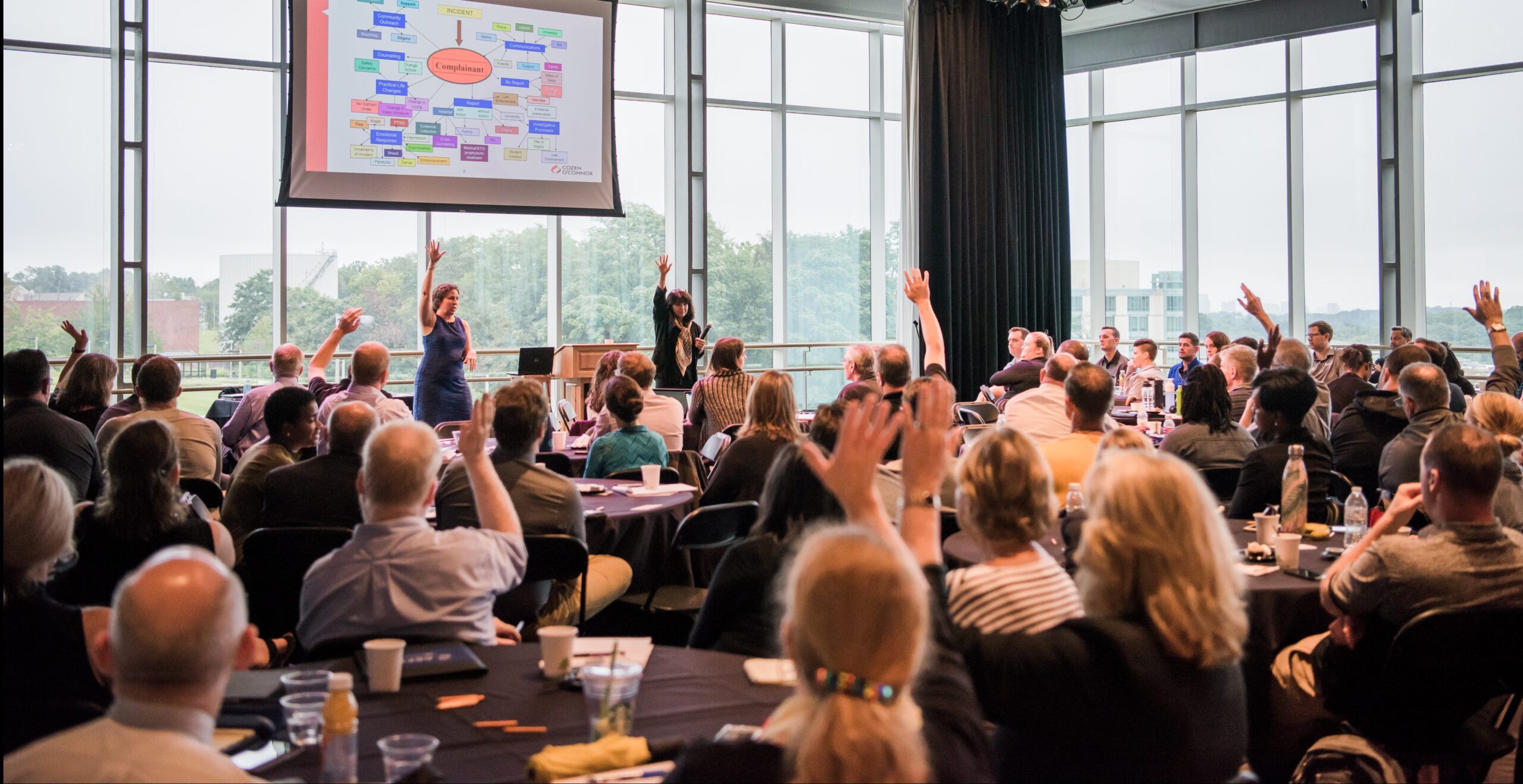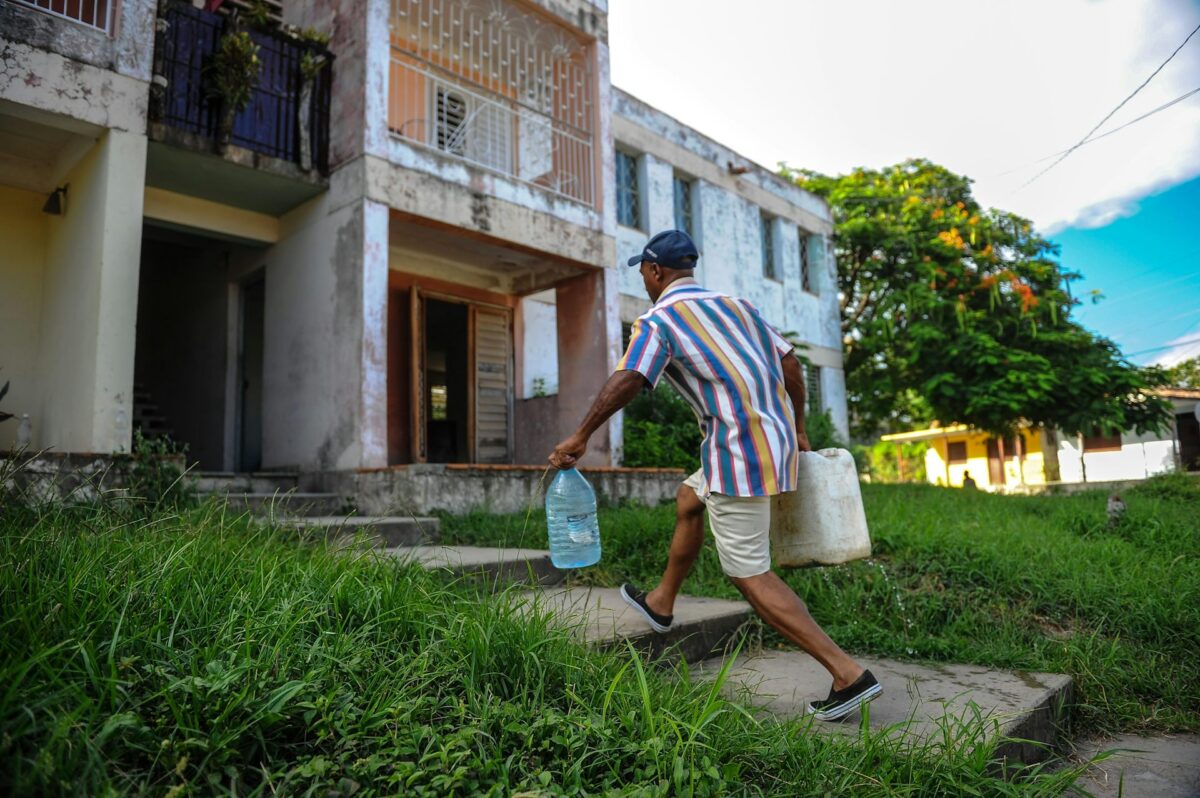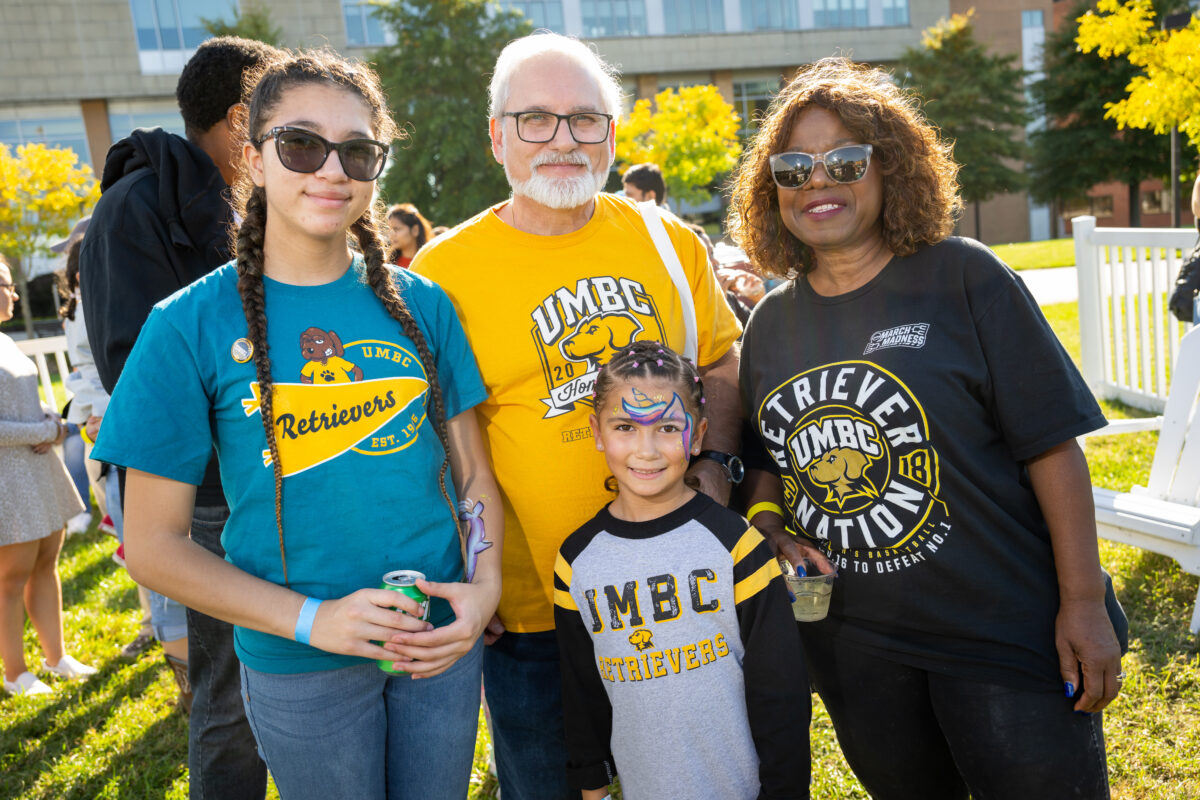A group of 125 UMBC faculty, staff, and students gathered today for UMBC’s annual Title IX/Sexual Misconduct Seminar, focused on caring and effective response to sexual misconduct.
“There is nothing more important here than a climate and culture that focus on respect for all people,” said UMBC President Freeman Hrabowski at the start of the full-day workshop. “Some people think this is the work of a few, but it is all of our responsibility.”
Faculty, staff, and students from across UMBC joined in the workshop, including representatives from Residential Life, Athletics, the Women’s Center, university administration, UMBC programs at the Universities at Shady Grove, and many other offices and groups.
To lead the seminar, UMBC welcomed Gina Maisto-Smith and Leslie Gomez, former child abuse and sex crimes prosecutors who are now chair and vice chair of the Cozen O’Connor’s Institutional Response Group. Their practice focuses on response to sexual and gender-based harassment and violence, child abuse, and other forms of harassment and discrimination.
Maisto-Smith and Gomez’s interactive talk reviewed requirements under Title IX, the Clery Act, the Violence Against Women Act, and updates on current federal policy and guidance. Gomez also emphasized, “The law alone isn’t enough.” She noted that values-based organizations like UMBC focus on “care for community,” as well as law, policy, and guidance available.
In addition to legal requirements, the speakers helped participating faculty, staff, and students better understand how to remove barriers to reporting, treat all community members fairly, and quickly and sensitively connect community members to support resources. At every level of response, Gomez noted, “Language is very important.”
While each annual seminar includes many similar components, such as a review of law, policy, and best practices, each one also has a unique focus. This year’s training follows a 2017 fall seminar for university leaders that focused on neurobiological responses to trauma, to support trauma-informed care.
A common thread in each annual training, said Provost Philip Rous, is that “coordination and collaboration” are essential for effective response to sexual misconduct — working together to fulfill UMBC’s commitment to providing a safe, supportive learning community.
As President Hrabowski said to the group at the start of the day, “Thank you for being here this morning. We know it is because you care.”



